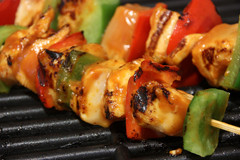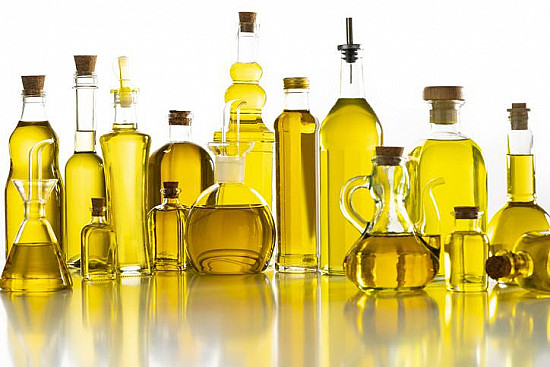Harvard Health Blog
5 tips for healthy grilling

Summer is the prime time for grilling. From northern Maine to southern California, the backyard barbeque is a key part of the season. Whether your menu includes simple burgers or something more elaborate, a little preparation can help you serve up a healthy meal.
Start out clean. Don't let the charred buildup on your grill transfer to your meal. Use a wire brush to give your grill a good cleaning. Then wipe it down with a cloth or wadded-up bunch of paper towels to make sure that no grill-cleaning bristles will get into your food—or your guests.
Smoke and fire. Exposing protein-rich meat, poultry, and fish to high heat and open flames creates heterocyclic amines. When fat drips and burns on the grill, the resulting smoke contains polycyclic aromatic hydrocarbons. These two groups of chemicals have been linked to various types of cancer. You can reduce the formation of heterocyclic amines and polycyclic aromatic hydrocarbons several ways: Line the grill with foil perforated with holes. Cook for longer at a lower temperature. Have a spray bottle filled with water handy to control fatty flare-ups.
Marinate. Marinating food for a while before cooking limits the formation of potential carcinogens while grilling. Recipes abound for healthy marinades that will add flavor to whatever you are grilling. If you rely on bottled marinades, choose those that are low in salt.
Give veggies and fruit equal billing with meat. Grilling intensifies the flavor of fruits and vegetables, just as it does for meat. Kebabs that alternate meat with pieces of onion, pepper, or other produce, like spicy chicken kebabs with Moorish flavors, are a great way to increase vegetable and fruit intake. Or skip meat altogether, with something like grilled eggplant cutlets with tomato or portabella mushroom "steak" sandwiches.
Practice safe grilling. Keep raw meat, poultry, and seafood separate from vegetables and other foods. Use a food thermometer to check the internal temperature of grilled meat, poultry, and seafood. Place grilled foods on clean plates, not on the ones that held them when they were raw. The USDA offers other tips for keeping food safe.
Disclaimer:
As a service to our readers, Harvard Health Publishing provides access to our library of archived content. Please note the date of last review or update on all articles.
No content on this site, regardless of date, should ever be used as a substitute for direct medical advice from your doctor or other qualified clinician.















